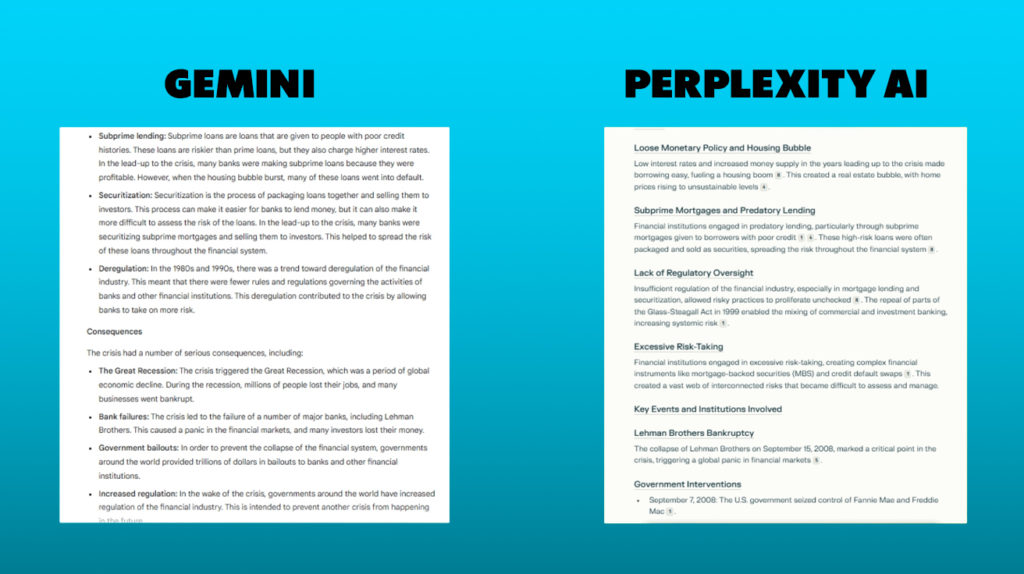Remember when we’d spend hours hunting through libraries for that one perfect piece of information? Those days are gone like flip phones at an Apple event. We’re drowning in data now, and standard AI just skims the surface – it’s like trying to understand the ocean by looking at waves. Deep research tools change the game entirely. They don’t just find information; they connect dots across sources in ways that feel almost supernatural. Imagine having access to a research team that works 24/7, never sleeps, and processes information faster than any human could dream of.
Deep Research Defined

Deep research isn’t your basic Google search; it’s like having a personal knowledge concierge working exclusively for your information needs. This technology actively crawls the web, synthesizes findings, and delivers comprehensive reports that make sense of chaos. Based on industry reviews, these tools can significantly reduce research time while uncovering relevant information traditional methods often miss. Each platform offers unique capabilities – some prioritize speed, others depth – but all transform how we convert raw data into actionable wisdom.
Perplexity Deep Research

Perplexity completes research in under three minutes, making it the speed champion of deep research tools. For beginners dipping their toes into AI research waters, Perplexity provides the friendliest shore. Reports include numbered citations that make fact-checking simple and transparent. Its interface feels intuitive from the start, making it particularly suitable for quick competitive assessments when time matters more than exhaustive detail. The $20 monthly subscription aligns with industry standards for comparable tools. The downside? Extended conversations can lead to context loss – Perplexity sometimes struggles to maintain thread continuity in lengthy sessions.
Jenspark AI Deep Research

Jenspark AI offers a visually-oriented approach to research presentation. According to product documentation, it creates mind maps that organize complex information into visual patterns, potentially beneficial for teams that process information better through graphics than text. The platform includes takeaway sections highlighting critical points while estimating reading time savings. This visual approach may particularly benefit creative teams and visual thinkers who struggle with text-heavy reports. The system reportedly uses multiple AI agents, selecting different models for specific tasks, though independent verification of these features and their effectiveness is limited in current reviews.
Researching a New Tool

Evaluating business tools used to feel impossibly complex – like trying to choose a streaming service when there are too many options. Deep research transforms this process into a streamlined experience. Based on user testimonials, this approach helps teams make more informed decisions when selecting new software or equipment. Start by establishing clear evaluation criteria about what matters most – integration capabilities, learning curves, scalability – then utilize your preferred deep research tool to gather comprehensive data on each option. The structured comparison makes decision-making more confident and efficient.
Client Research for Proposals

Modern client preparation through deep research gives sales teams a significant competitive edge. In hours rather than days, you can uncover positioning details, competitive landscapes, and pain points that transform generic pitches into targeted solutions. According to industry best practices, investigating a prospect’s industry position, recent news mentions, leadership changes, and strategic initiatives before meetings leads to more successful pitches. The resulting proposals address specific client needs with precision rather than relying on generic templates that could apply to any business.
Target Audience Deep Dives

Most marketing campaigns underperform because they fundamentally misunderstand their audience – like trying to sell sunscreen during a snowstorm. Deep research solves this by generating comprehensive audience insights that reveal behavioral patterns beyond basic demographics. According to marketing experts, implementing regular audience analysis helps teams stay current with evolving preferences and create more effective campaigns. The resulting marketing connects more authentically with real people rather than imagined personas, leading to better engagement across channels.
Regulatory Compliance Research

Tracking shifting regulations traditionally requires extensive manual research or expensive legal consultations. Deep research tools can efficiently monitor regulatory changes across jurisdictions, identifying what applies to your specific business circumstances. Compliance professionals recommend establishing regular review protocols using research platforms to stay ahead of pending changes. This proactive approach helps organizations identify potential compliance issues before they become problems, potentially reducing the need for last-minute adjustments or crisis management when regulations change.
Market Opportunity Analysis

Deep research excels at identifying emerging market trends before they become obvious to everyone. These tools can spot unsaturated opportunities where competition hasn’t yet reached critical mass. Industry analysts recommend focusing on specific market segments rather than broad categories for maximum effectiveness. Companies using systematic research approaches can identify shifts in customer behavior and market conditions earlier than competitors relying on traditional methods. This early awareness allows for strategic positioning ahead of market changes – like arriving at a destination before traffic builds up.
Gemini Deep Research Use Cases

Gemini functions particularly well for complex information challenges like market trend research and benchmarking campaigns. According to user reports, its customizable parameters allow for precisely targeted research. Teams can edit research plans and steer analysis direction as needed, while citations and links appear automatically for verification. This tool works especially well for organizations already invested in the Google ecosystem, as the integration with other Google products enhances its utility for collaborative research and documentation processes.
Notebook LM Integration

Integrating Gemini with NotebookLM creates a research ecosystem where information flows smoothly between platforms. This combination works particularly well for ongoing projects where information builds upon previous discoveries. Adding findings directly into a knowledge base creates an expanding research foundation that grows more valuable over time. Business analysts note this integration is especially beneficial for teams conducting longitudinal research or working on complex projects requiring extensive documentation and knowledge management.
Deeper Market Analysis

Standard market research often misses critical insights hidden beneath surface-level data. Deep research illuminates these hidden patterns with greater clarity. The AI typically generates multi-point research plans that examine customer behavior while exploring market trends from multiple angles. Market specialists recommend focusing on specific customer segments rather than broad demographics for truly actionable insights. The resulting reports export easily to common document formats for seamless sharing across organizations.
Tailoring Research to a Specific Target Audience

Generic research yields generic results – about as helpful as one-size-fits-all clothing. Effective research must understand audience nuances. Marketing experts suggest specifying precise timeframes and target demographics to ensure insights align perfectly with specific audience needs. Developing detailed audience personas before beginning research guides AI toward truly relevant information. This tailored approach yields more actionable insights than generic market research, helping teams develop strategies that connect more effectively with their intended audiences.
Presentation Research

Creating presentations without solid research foundations rarely delivers compelling results. Deep research gathers precise data that forms the backbone of engaging content. Presentation specialists recommend specifying parameters carefully to ensure relevance for your specific audience. When preparing for industry events, research tools can gather relevant metrics that export directly to spreadsheets for visualization. Begin by identifying key questions your audience needs answered to focus your research effectively. The resulting presentations deliver both substance and style.
Personalized Learning

Deep research transforms learning by creating experiences tailored to individual interests rather than generic educational content. Whether exploring health topics or investigating professional subjects, these tools build knowledge libraries customized to unique curiosity patterns. Education technology experts suggest establishing regular research schedules focusing on interconnected topics to build comprehensive understanding. This personalized approach helps learners engage more deeply with material that aligns with their specific interests and learning styles.
Marketing Strategy Research

Comparing Gemini and Perplexity for marketing strategy research reveals different strengths despite identical $20 monthly price tags. Based on comparative reviews, Gemini typically draws from more sources with greater depth, while both maintain efficient output formats for strategy development. Marketing professionals recommend blending AI research findings with traditional analytics for comprehensive strategies balancing innovation with proven approaches. This combined methodology helps teams develop more informed marketing plans while reducing the time required for initial research and data gathering.





























